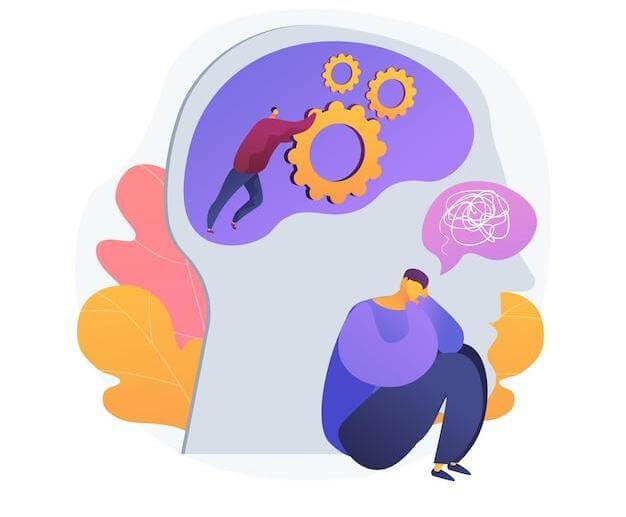For men over 40, the challenges of middle age life can often seem too much to bear. Physical and emotional strains from work, family obligations, financial instability – all these things have a significant impact on our health.

One particularly vulnerable group facing added risks are older men who suffer from both diabetes and depression.
By understanding why men in this stage of life can be more prone to diabetes and depression, we’re better placed to address these issues head-on with preventative measures such as lifestyle changes or medication if necessary.

In this article, we’ll explore some specific reasons why these conditions are more common among older males; examining potential causes associated with aging processes and how they might contribute to the higher risk for depression and diabetes in later life.
8 reasons why men over 40 are at higher risk for diabetes and depression
As men reach their 40s, they often experience changes in physical and mental health. Here are some typical changes in health or symptoms of men in their 40s with diabetes and depression:
- Men over 40 with diabetes and depression may experience chronic fatigue and a loss of energy.
- They may also have an increased risk of heart disease due to high blood pressure and high cholesterol levels.

- Men in their 40s with diabetes and depression are more likely to experience weight gain or difficulty losing weight.

- They may also have trouble sleeping, leading to irritability and difficulty concentrating during the day.

- Men with diabetes and depression in their 40s may also experience sexual dysfunction.

- They may have a higher risk of developing infections or slow healing of wounds due to poor blood sugar control.
- Men in this age group may also be at a higher risk of developing eye problems such as retinopathy.

- Depression and anxiety can also lead to social withdrawal and a lack of interest in activities once enjoyed.
These changes may put them at a higher risk for developing health conditions like diabetes and depression. While there are several factors that can contribute to these risks, one of the culprits is hormonal changes within the body.

As testosterone levels decrease and other hormones fluctuate, men may experience changes in their metabolism, mood, and overall health.
By understanding the unique challenges that men over 40 face, healthcare providers can work to provide targeted care and support to prevent and manage these conditions.
Biological Factors that Put Men Over 40 at Risk
As men age, there are a number of biological factors that put them at risk for various health complications. One of the most significant risk factors is hormonal changes.
Testosterone levels begin to decline in men as they reach their mid-forties, and this can lead to a variety of issues, including:
- decreased muscle mass
- increased body fat
- decreased sex drive
- high blood pressure
- high cholesterol
- diabetes
- increased risk of prostate cancer
- erectile dysfunction
- cognitive decline

Despite these risks, there are many things men can do to prioritize their health and reduce their risk of developing these conditions, including eating a healthy diet, exercising regularly, and staying on top of recommended medical exams and check-ups.
Psychological factors that contribute to higher risk of diabetes and depression for men over 40
When it comes to addressing higher risk factors, we must consider the multitude of potential contributors, both psychological and environmental.
From a psychological perspective, factors such as:
- stress levels
- mental health conditions
- personal mindset
These can all play a role in determining an individual’s risk level.
Johns Hopkins Medicine with Dr. Sherita Golden shares a video titled “Why are Depression and Diabetes Linked?
Environmental factors that contribute to higher risk of diabetes and depression for men over 40
Environmental factors, on the other hand, might include:
- living conditions
- access to resources

- exposure to various hazards

By taking a holistic approach and considering all of these factors, we can better understand why certain individuals might be at a higher risk and develop targeted interventions to address those risks.
Ultimately, when it comes to reducing risk factors, knowledge truly is power.
The Link between Diabetes and Depression in Men Over 40
Diabetes and depression are two diseases that have been found to have a close connection. They are both common in the adult population and can lead to negative effects on quality of life.
Research has shown that there is an even stronger link between diabetes and depression in older adults. As the body ages, it becomes more susceptible to developing chronic diseases such as diabetes. This, in turn, can lead to an increased risk for depression.

Managing both diseases in this age group can be challenging, as they often require lifestyle changes and medication adherence. It’s important for older adults with diabetes to address their mental health as well, as the two diseases are intricately linked.
Evaluate Lifestyle Changes That Can Reduce Risk
Living a fulfilling life is all about striking a balance between healthy habits and enjoying the things we love. With that being said, there are some lifestyle changes that we can make to reduce our risk of developing certain health conditions.

For example, focusing on a wholesome diet and engaging in regular exercise not only strengthens our immune system and improves our mental health, but also lowers our chances of developing diabetes, heart disease, and cancer.
It’s also crucial to practice stress management techniques and get enough sleep.

By taking a proactive approach towards our health and making simple adjustments to our daily routines, we can effectively reduce our risk of developing major health concerns and live happier, healthier lives.
Stress Management Tips to Help Lower Risk of Diabetes & Depression in Men Over 40
As men age, their risk for developing diabetes and depression increases. However, there are several stress management tips that can help lower these risks.
First and foremost, exercise is key. Not only does it help with physical health, but it also releases endorphins that can improve mood.

Additionally, practicing mindfulness techniques such as meditation or deep breathing can help reduce stress and improve overall well-being.

Making sure to prioritize self-care and take breaks when needed is also important, as pushing oneself too hard can lead to burnout and increased stress levels.
Concluding thoughts on why men over 40 are at higher risk for diabetes and depression
By incorporating these stress management tips into their daily routine, men over 40 can lower their risk for diabetes and depression while improving their overall quality of life.

An understanding of why men over 40 are at higher risk of developing both diabetes and depression is the first step toward taking part in preventive measures that will aid lifelong physical & mental wellbeing.
The links used on thewellthieone.com are affiliate links, which may provide a small commission. This does not increase the price of the goods for the consumer whatsoever. What it does is ensure that useful content like this can continue to be produced. Thank-you for enjoying our content and allowing us to continue to provide more.
Sources and additional reading
“Diabetes and Mental Health” – CDC Link
“Mental Health | ADA” – American Diabetes Association Link
“Diabetes and Depression: What’s the Link?” – Healthline Link
“Managing Diabetes” – NIDDK Link
“Provider Resources : Health and Wellness” – IEHP Link
“Diabetes: What It Is, Causes, Symptoms, Treatment & Types” – Cleveland Clinic Link
“Type 2 diabetes – Diagnosis and treatment” – Mayo Clinic Link







